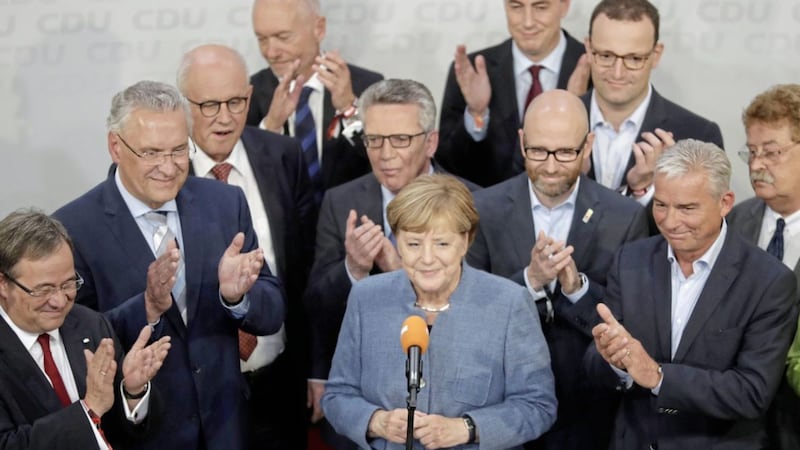I’ve written before that I don’t like empires. They always end badly: usually bloodily and brutally. And they end for the same reason: when it comes down to it, most people prefer the sense of common identity and history that comes with a clearly defined nation state.
More than that, they like to feel close to their own government—even if they don’t always agree with it—and have the guarantee that it is replaceable and accountable. Empires don’t come with those guarantees: and that’s why they fall.
It doesn’t matter, either, if the empire, as it grows, seems to bring other benefits. As ‘Reg’ noted in the Life of Brian, the Romans may have brought “sanitation, medicine, wine, public order, irrigation, roads, a fresh water system, public health and peace,” but it still wasn’t enough to save it. The people it claimed to govern didn’t want to be governed by a remote, unaccountable power. They didn’t regard themselves as Roman citizens. They didn’t accept that they owed allegiance and tax to an emperor they never saw.
I voted No in the Common Market referendum in 1975. I voted No because I was pretty sure that what was supposedly a mechanism for making it easier for European countries to do business, would become an empire. Those of us who held such a view—I was 20 at the time—were ridiculed by the political ‘establishment,’ including Margaret Thatcher: “It is a nonsense to believe that some sort of European empire or state could be built.”
And yet we have a European Union. A flag. A parliament. An executive. A president. A currency. A foreign policy. An army. The right to force laws and rules upon a member country. The determination to threaten and punish those who would dare to leave. That’s a super state we’re talking about. That’s an empire we’ve seen built before our very eyes. The very thing we were told couldn’t happen. The very thing we were told wasn’t even in the minds of the key players in the 1960s and 70s.
Two weeks ago, Jean-Claude Juncker, the president of the European Commission, set out his ‘blueprint for a United States of Europe,’ with vast centralised powers: “I hear those who say we should not rock the boat now things have started to get better. But now is not the time to err on the side of caution. We must complete the job now the sun is shining and while it still is. Because when the next clouds appear on the horizon—and they will—it will be too late.”
One of those clouds rolled over the horizon last Sunday, when Angela Merkel’s CDU recorded its worst result since 1949, while the far-right AfD far exceeded expectations. In the very heart of the EU empire, where its loudest, most enthusiastic champions are usually to be found, it became clear that the voices and vehicles of discontent and nationalism were on the rise: as they are in most EU member states. Those who oppose the empire are no longer on the political/electoral fringes. Many of them are now at the very heart of the political process in their own countries.
On Tuesday, President Macron (a foolish man, by just about every yardstick) reacted to the German result: “The Europe we know is too weak, too slow, too inefficient, but only Europe gives us the capacity to act on the world stage in the face of the big, contemporary challenges. The only path that assures our future is the rebuilding of a Europe that is sovereign, united and democratic.”
The responses of Macron, Merkel and Juncker tell you all you need to know about those at the heart of the empire. They refuse to see the evidence of their own eyes. They refuse to believe that there are other ways to build a relationship between European nations. They refuse to accept that their present actions—indeed, many of their actions since the early 1980s—are, in reality, the seeds of their own downfall. The virulence of the nationalism growing across the EU is the inevitable response to an elite at the centre that refuses to see or hear what is going on around them. A few hours with Gibbon’s Decline and Fall of the Roman Empire, would open their eyes and ears.
As I said in a series of articles in the run-up to last year’s referendum, I was on the Leave side of the debate because the worries I had in 1975 had multiplied in the following 40 years. Worse, the empire is now a reality. It may take 10 years or 20 years, but the EU as we know it today is going to collapse. Empires can’t go backwards - they can’t undo: all they can do is push ahead, build on failure and hope that the internal pressures disappear. They don’t. They won’t. They implode and die. The EU won’t be the exception.








